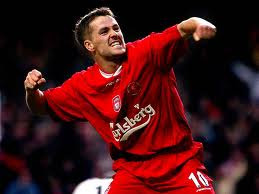 On 31 December 1972, French goalkeeper Grégory Coupet was born. He went on to help Lyon to a record seven straight Ligue 1 titles from 2002 to 2008.
On 31 December 1972, French goalkeeper Grégory Coupet was born. He went on to help Lyon to a record seven straight Ligue 1 titles from 2002 to 2008. Born in the commune of Le Puy-en-Velay in south-central France, Coupet joined the youth program of his local club, Olympique Le Puy, but signed his first professional contract with Saint-Étienne in 1993. He made only one appearance for the club that first season, but established himself as a regular starter the following year. Despite his promising performances, Les Verts were relegated at the end of the 1995-96 season, prompting his move to rivals Lyon in December 1996.
At Lyon, Coupet anchored a defense that saw steady improvement in the club's final league position every year, culminating in their league title at the end of the 2001-02 season--the first in an unprecedented seven consecutive Ligue 1 titles. Along the way, they also won the Coupe de France (2008), Coupe de la Ligue (2001), and the Trophée des Champions (six times, from 2002 to 2007). By the time Coupet left Lyon for Atlético Madrid in the summer of 2008, he had made 518 appearances, ranking him second on the club's all-time list behind Serge Chiesa (541 appearances from 1969 to 1983).
Despite his club success, including Ligue 1 Keeper of the Year awards in 2004 and 2005, Coupet never enjoyed a long run as France's first-choice keeper, falling behind Fabien Barthez earlier in his career, then behind Hugo Lloris and Steve Mandanda later. Nevertheless, he earned a total of 34 caps, including a starting run during Euro 2008.
He retired in 2011 after finishing his career at Paris Saint-Germain.













































